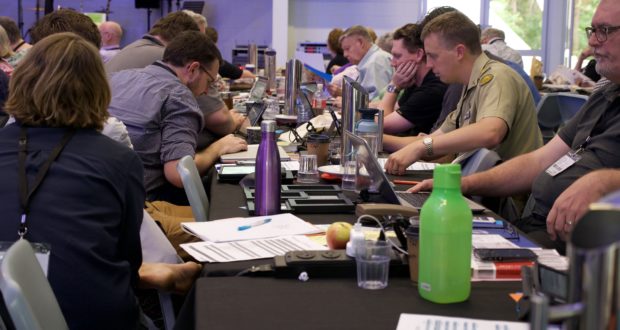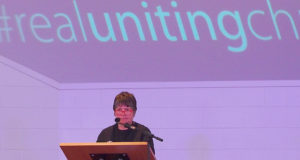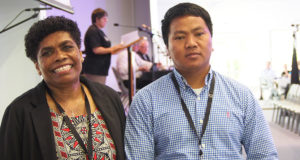The challenges ahead, and Queensland Synod’s plan to meet them, were the topics of the Synod report presented by chairperson of the Finance Investment and Property (FIP) Board Ralph Collins on 23 October. The board has the primary focus of providing good stewardship of church assets and funds.
In his presentation Ralph set the context for the work of the board, pointing out that there was an ongoing tension between short term and long term strategies as the Synod faced the reality that demands upon resources are exceeding capacity. Challenges for the board include revising and renewing policies to meet the missional and sustainability objectives of the church.
Ralph reported the development and approval of a number of new Synod-wide policies in the last synodial term including Synod Property and Other Delegations Policy (including the UnitingCare Queensland Delegations framework as a schedule) and the Synod Documents Execution Policy.
The board also approved a revised Synod-wide Treasury Policy. This policy allows investment into equities through selected managed funds that comply with the Synod Ethical Investment Policy. Some Synod funds will be invested in 2017/18, and this fund may be made available to other church bodies after recognising the short-term risk that these investments introduce.
Over the long term (seven plus years) these investments are expected to generate higher than cash returns.
In addition, the report noted that based on cash flow forecasts, the external debt facility has been reduced to $5m for 2016/17, saving over $300,000 in fees. This is an ongoing annual saving as long as the debt facility remains at this limit. The board is continuing to monitor the 10-year strategy to rebuild the Synod Reserve Fund. After consideration of current claims, a sensitive matters equity reserve has been created with an initial allocation of $5m in 2017/18.
Synod heard that a stewardship fee agreement has now been finalised with UnitingCare Queensland, replacing the margins on the finances managed through the Synod office. The board hopes to build on the agreement and to develop models with other church bodies to help fund the Synod office.
Looking ahead, priorities for the FIP board include developing a property strategy that ensures property is used for missional purposes and to increase the sustainability of the church.
Ralph told Synod that development approval for the Alexandra Park site had been granted, and that an options paper would be prepared for consideration. He also corrected media reports that a decision had been made already to build town houses on the site.
The final report of the Finance and Property Services (FAPS) department was presented to Synod as part of the report from the general secretary. Following the restructure of the Synod office in 2017 the services provided by FAPS are now provided by different teams.
In his report former director Peter Cranna noted achievements within the FAPS teams, including a presbytery treasurers’ forum and the commencement of a fraud awareness pack for congregations and a re-write of the treasurers’ manual.
He also noted that the Synod office, UnitingCare and Wesley Mission Queensland have combined to tender for external audit services, with a common audit provider selected to provide competitive market pricing and service provision.
Synods also are working together to consider opportunities for the establishment of a consolidated national insurance program with a single broker appointment. The objective is to build upon and review existing general insurance program placements and structures to ensure appropriate and comprehensive insurances are in place to mitigate insurable exposures in the most effective and efficient way.
In his review of the risks and challenges ahead, Peter underlined the importance of rebuilding the Synod Reserve Fund to cover future emergencies, and finding revised and alternative funding sources and models for the Synod office into the future.
 JourneyOnline
JourneyOnline






